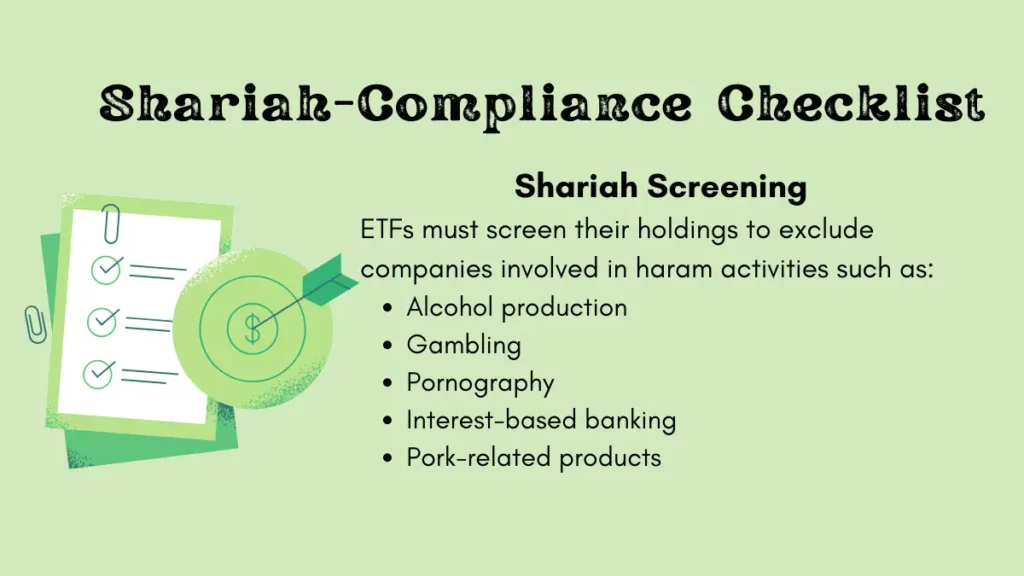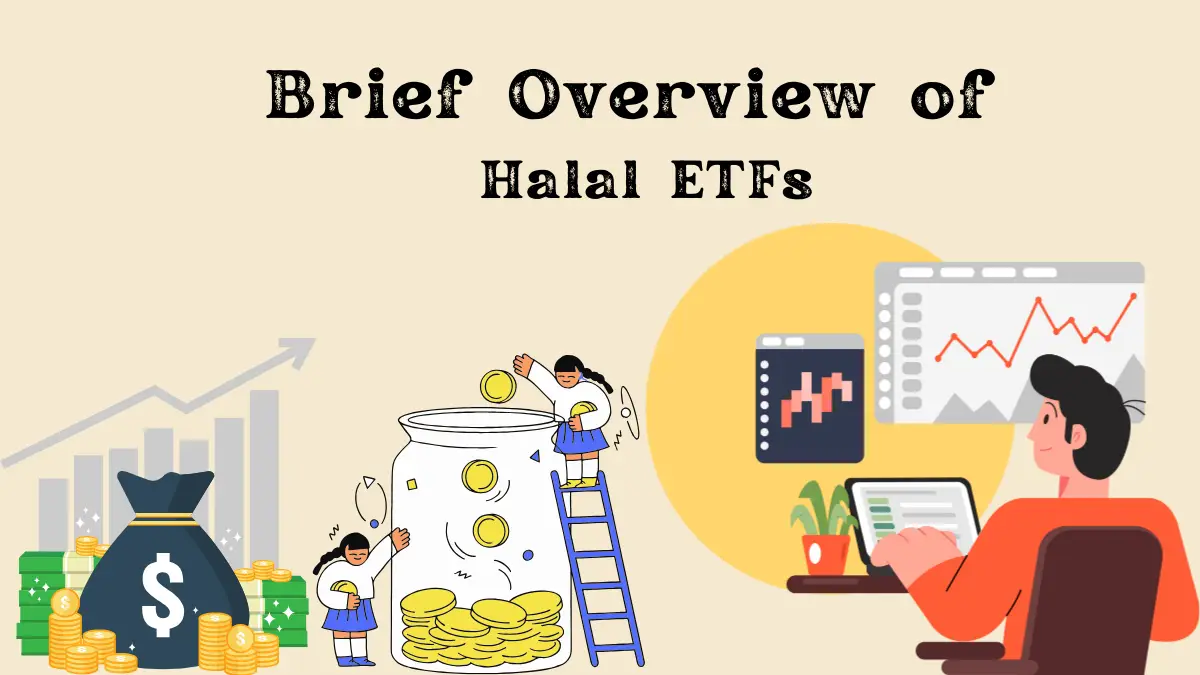In recent years, Exchange-Traded Funds (ETFs) have gained immense popularity among investors due to their flexibility, diversification, and cost-effectiveness. However, for Muslim investors, an important question arises: Are ETFs halal? This blog explores this topic comprehensively, addressing the Islamic principles, types of ETFs, and the criteria that make ETFs permissible or impermissible in Islam.
Brief Overview of ETFs
An Exchange-Traded Fund (ETF) is an investment fund traded on stock exchanges, similar to individual stocks. ETFs typically track an index, commodity, sector, or other asset types. They offer a diversified portfolio, making them an attractive option for investors.
Features of ETFs:
- Diversification: Access to a wide range of assets.
- Liquidity: Traded on exchanges throughout the trading day.
- Low Cost: Lower fees compared to mutual funds.
- Transparency: Regular disclosure of holdings.
The Islamic Perspective on Investments
Islamic finance emphasizes ethical investing based on principles derived from the Quran and Sunnah. Key aspects include:
- Prohibition of Riba (Interest): Any investment involving interest is haram.
- Avoidance of Gharar (Excessive Uncertainty): Speculative transactions are not allowed.
- Halal Business Activities: Investments must avoid companies involved in haram activities like alcohol, gambling, and pork.
These principles form the foundation for determining whether an investment, including ETFs, is halal or haram.
Types of ETFs
Understanding the types of ETFs is crucial to assessing their compliance with Islamic principles:
a. Equity ETFs:
Track a basket of stocks. Some equity ETFs focus on specific sectors or markets.
b. Bond ETFs:
Invest in fixed-income securities. Since bonds often involve interest (riba), bond ETFs are generally not halal.
c. Commodity ETFs:
Invest in physical commodities like gold or oil. These can be halal if the underlying commodities comply with Shariah.
d. Real Estate ETFs:
Invest in real estate properties or Real Estate Investment Trusts (REITs). Their permissibility depends on the nature of the underlying properties.
e. Shariah-Compliant ETFs:
Designed specifically for Muslim investors, these ETFs adhere to Islamic principles by screening assets for Shariah compliance.
Criteria for Halal ETFs
To determine if an ETF is halal, the following criteria must be considered:
a. Shariah Screening
ETFs must screen their holdings to exclude companies involved in haram activities such as:
- Alcohol production
- Gambling
- Pornography
- Interest-based banking
- Pork-related products

b. Financial Ratios
Scholars often apply financial screens to ensure companies have minimal involvement in interest-based activities. Commonly used ratios include:
Debt-to-Equity Ratio: Should not exceed a specified threshold, usually 33%.
Interest Income: Must be below a certain percentage of total revenue.
c. Underlying Assets:
The ETF’s underlying assets should be tangible and halal. Speculative or derivative-based ETFs are generally considered haram due to gharar.
Popular Halal ETFs
Several ETFs cater specifically to Muslim investors. Examples include:
- SP Funds Dow Jones Global Sukuk ETF (SPSK): Focuses on Sukuk (Islamic bonds).
- Wahed FTSE USA Shariah ETF (HLAL): Tracks the FTSE USA Shariah Index.
- iShares MSCI World Islamic UCITS ETF (ISDW): Offers exposure to Shariah-compliant global stocks.
Know More:
Benefits of Investing in Halal ETFs
For Muslim investors, halal ETFs provide an opportunity to grow wealth ethically. Benefits include:
- Shariah Compliance: Ensures investments align with Islamic principles.
- Diversification: Reduces risk by investing in multiple assets.
- Professional Management: Assets are managed by experts familiar with Islamic finance.
- Access to Global Markets: Enables investment in international halal opportunities.
Challenges of Investing in Halal ETFs
Despite their benefits, halal ETFs come with challenges:
Limited Options: The number of Shariah-compliant ETFs is relatively small compared to conventional ETFs.
- Higher Costs: Shariah compliance screening can increase management fees.
- Complexity: Determining halal status requires thorough research and understanding.
How to Identify Halal ETFs
To ensure an ETF is halal, follow these steps:
- Check for Certification: Look for ETFs certified by reputable Shariah boards.
- Review Prospectus: Examine the ETF’s investment objectives and holdings.
- Consult Experts: Seek advice from Islamic finance scholars or professionals.
- Use Screening Tools: Utilize platforms like Zoya or IdealRatings to identify halal investment options.
ETFs vs. Mutual Funds: Which is Better for Muslim Investors?
Both ETFs and mutual funds offer diversification, but they differ in several aspects:
ETFs:
- Trading: Can be bought and sold throughout the trading day.
- Lower Fees: Generally have lower expense ratios.
Mutual Funds:
- Active Management: Often managed actively, which can lead to higher costs.
- Limited Liquidity: Trades only at the end of the trading day.
For Muslim investors, ETFs provide a cost-effective and transparent way to invest in Shariah-compliant assets.
Future of Halal ETFs
The demand for halal investment options is growing as more Muslims seek ethical financial solutions. The Islamic finance industry is responding by introducing innovative products, including halal ETFs, that cater to this need. As awareness increases, the availability of Shariah-compliant ETFs is expected to expand, providing more opportunities for Muslim investors.
FAQs
Q1: Are all ETFs haram?
No, not all ETFs are haram. Their permissibility depends on the underlying assets and adherence to Islamic principles.
Q2: How can I verify if an ETF is halal?
You can verify an ETF’s halal status by checking for Shariah certification, reviewing its holdings, and consulting Islamic finance experts.
Q3: Are bond ETFs halal?
Most bond ETFs are haram because they involve interest-based bonds. However, Sukuk ETFs (Islamic bonds) are halal.
Q4: Can I invest in gold ETFs?
Gold ETFs can be halal if they are backed by physical gold and avoid speculative practices.
Q5: What is the best halal ETF for beginners?
The Wahed FTSE USA Shariah ETF (HLAL) is a popular choice for beginners due to its simplicity and Shariah compliance.
Conclusion
ETFs can be halal if they meet specific Shariah-compliant criteria. Muslim investors should carefully research and consult experts to ensure their investments align with Islamic principles. As the halal finance industry grows, investing ethically and profitably is becoming more accessible than ever.

